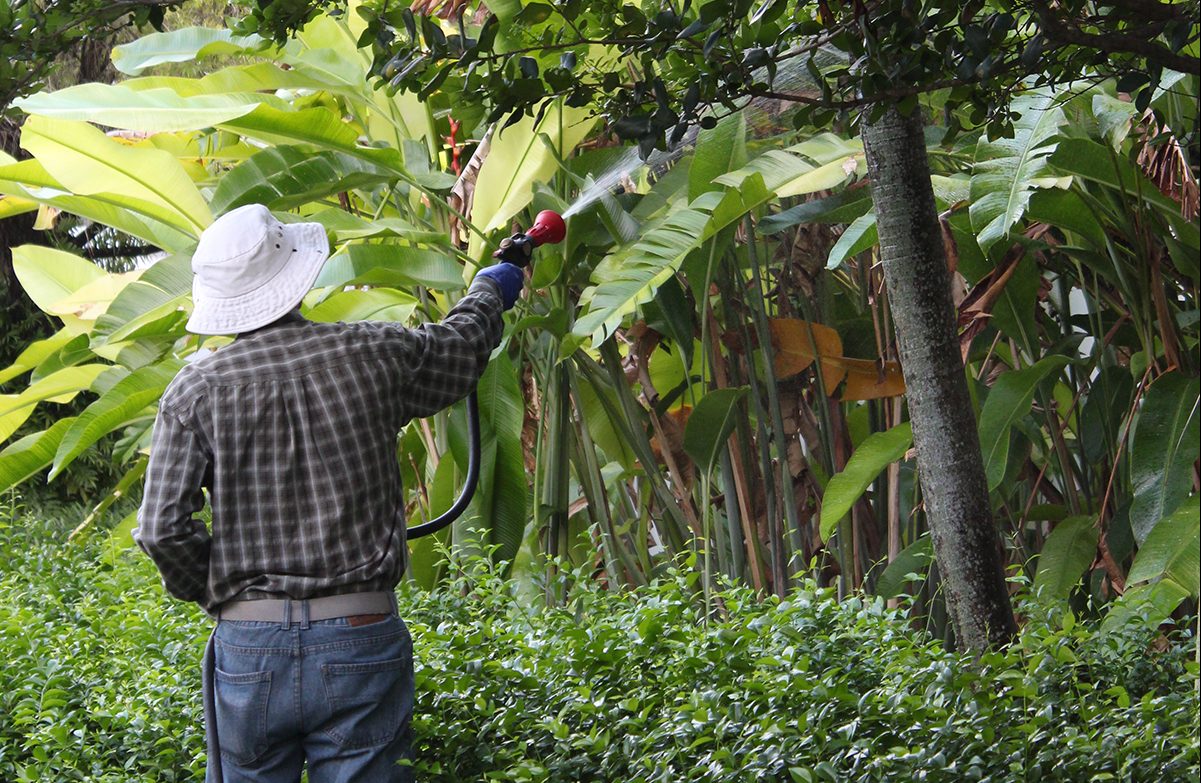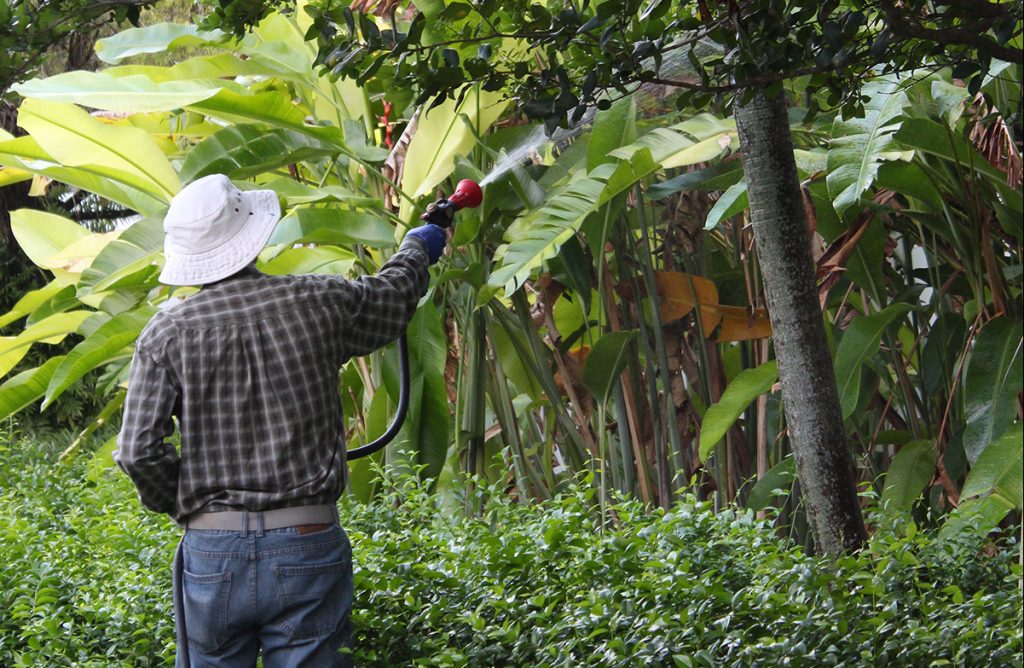

Hurricane Matthew may have spared Miami from the brunt of its damaging winds, but the storm’s rain posed new threats in the ongoing effort against the Zika virus in South Florida.
Hurricane Matthew left wet conditions and warm temperatures in its wake, giving mosquitoes that survived the storm the perfect conditions to breed – and quickly. The most notable risk comes from standing water, where Zika-carrying mosquitoes lay their eggs.
Even before the hurricane, more mosquitoes tested positive for Zika in the Miami Beach area, officials said on Oct. 4. This news comes after the city’s controversial aerial spraying of the insecticide Naled in Miami Beach.
Naled is an insecticide for adult mosquitoes and has been used in the U.S. since 1959. The chemical is said to be safe for humans and pets when used correctly. However, protests erupted among residents in Miami Beach over possible side effects prior to the ground and aerial spraying in September.
Zika virus is transmitted by the female Aedes aegypti mosquito and is most dangerous to pregnant women or women who plan on becoming pregnant because of its link to birth defects such as microcephaly, a neurological condition that results in a small head and brain, leading to developmental issues. The Center for Disease Control and Prevention (CDC) has also confirmed the virus can be sexually transmitted.
Galen Treuer, a University of Miami graduate student studying sea level rise, lives at one of five locations in Miami Beach where Zika-positive mosquitoes were found.
Treuer was only recently notified that mosquitoes in the yard of his condominium complex tested positive for Zika, and he said city officials have not been transparent with residents about findings.
“They basically told me there was a Zika-positive mosquito found in my yard on September 9,” he said. Galen said that despite having found the mosquito on the ninth, he was unaware until they told him about three weeks later. “They found it a long time ago, so I was upset because they didn’t tell us.”
Treuer said the Administrator of the Florida Department of Health in Miami-Dade County, Lillian Rivera, was present when officials informed him of the mosquitoes.
“She listened to my complaints, but she also didn’t give me a good reason for why they didn’t tell us,” Treuer said. “I just think it’s really unclear what they were trying to do.”
Treuer is not alone in his distrust with county protocol regarding the virus. The Miami Herald also sued the county in September, urging officials to finally release information about Zika-infested areas throughout the city.
Although Coral Gables has not been designated as an area of active local transmission, senior Kaylee Miner said she has taken extra precautions since she returned to campus in August to avoid being bitten by mosquitoes.
“I literally wear bug spray everywhere I go, even if I know I’m only going to be outside for a little,” she said. “And I avoided Wynwood all semester up until, like, last week.”
Aside from being bitten and getting the virus, Miner is concerned about the uncertainty of Zika’s long-term effects.
“I’m a little worried that I’m going to contract it and there won’t be any symptoms and then years down the road, when I want to have a baby, I won’t be able to,” she said. “That, and that I will develop some carrier virus which just gives Zika to my future baby and not to me.”
Kate O’Grady, a junior studying business and pre-med, also expressed fears about contracting the virus, given its links to other health issues.
“Although I am nowhere near trying to get pregnant, there are many reports that have linked Zika to other harmful health-related issues like Guillain-Barré syndrome,” she said. “This presents a potential problem to anyone, not just women who are pregnant or trying to conceive.”
Guillain-Barré syndrome in an autoimmune disorder that attacks the nervous system causing muscle weakness and even paralysis. The CDC continues to investigate the link between Zika virus and the disorder.
O’Grady said she is also concerned about Zika virus on the national scale.
“My utmost concern is that the health of our country is in danger,” she said. “Microcephaly is debilitating, and infants born with the predicament face a lifelong health challenge that includes learning, mental and physical disabilities.”
The UM Miller School of Medicine has also been a leading contributor in research necessary to confront Zika, and the school has already made great strides in research, affordable testing, education and prevention of the virus.
Adam Troy, health educator at the Student Health Center at UM, explained the importance of such research in determining the effects of Zika.
“The identified correlation between Zika and birth defects has only emerged recently,” he said. “Research that follows the health outcomes of children born to Zika-infected mothers will be necessary to determine long-term effects.”
The first real link between Zika virus and microcephaly emerged during October and November of 2015, when researchers noticed a rise in microcephaly cases as the virus began to spread more rapidly. It was only in April of 2016 that the CDC officially named Zika as a cause of microcephaly. The National Institute of Allergy and Infectious Diseases (NIAID) was in the preliminary stages of testing Zika vaccines in August.
According to Dr. David Watkins, vice chair of research in the Department of Pathology at UM, a vaccine for the virus will be a gradual process as expressed at the Zika forum held on Sept. 8. “There is great hope on the vaccine front, but be aware that a vaccine for use in humans has to go through several stages,” he said.
For now, research is extremely important in dealing with the virus, but Troy explained that there is no evidence to suggest that contracting Zika virus now will affect future pregnancies.
Students are advised to wear mosquito repellent containing DEET or Picaridin, use protection when having sex and avoid areas where mosquitoes have tested positive for Zika until officials deem the areas safe.





